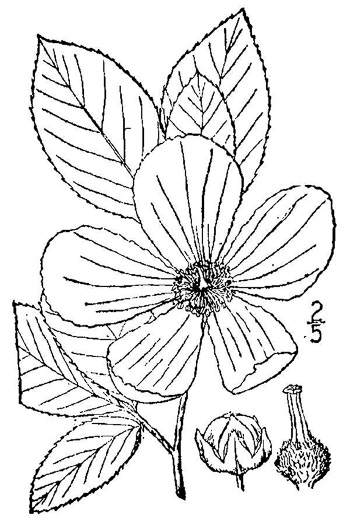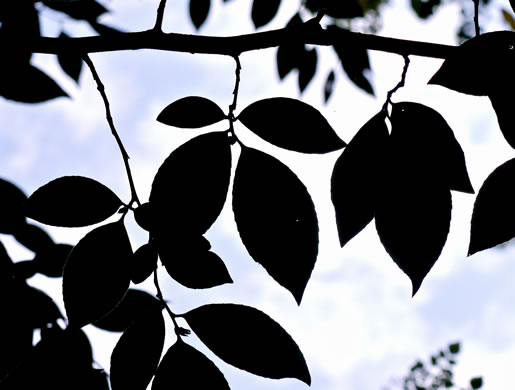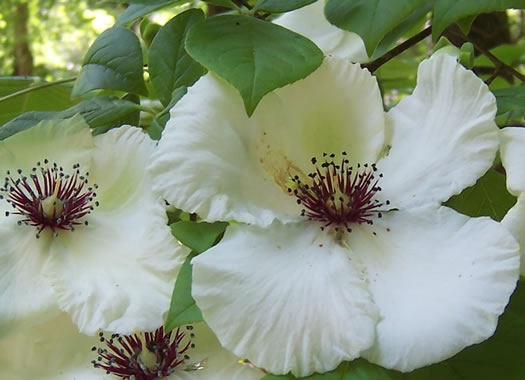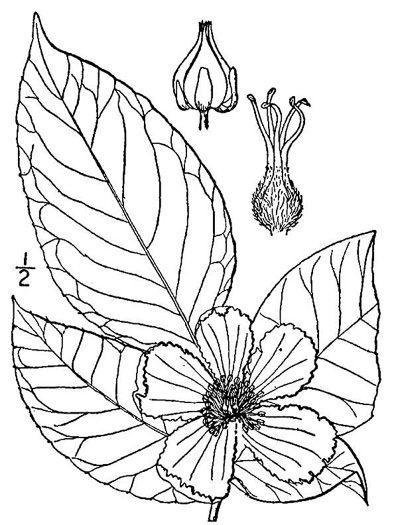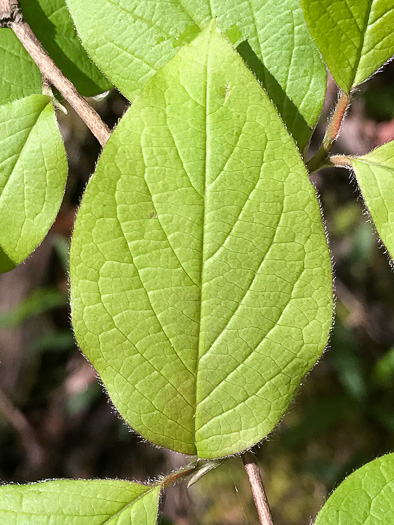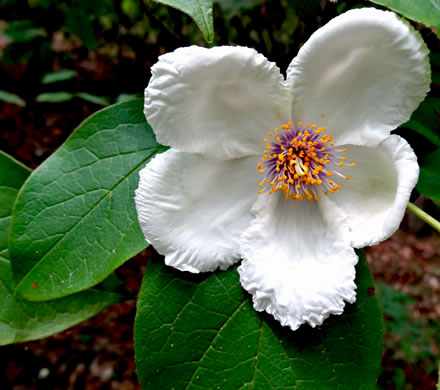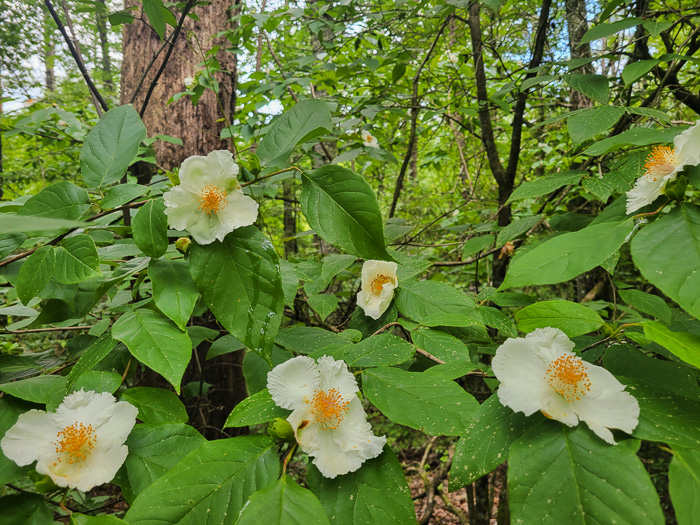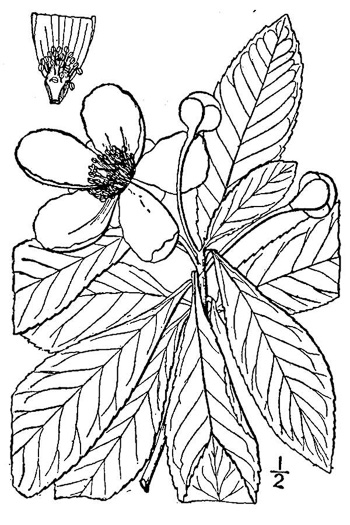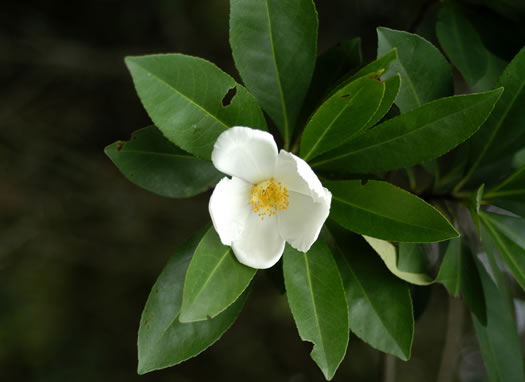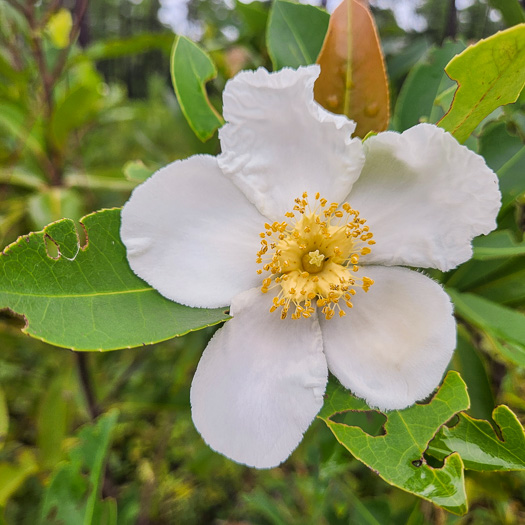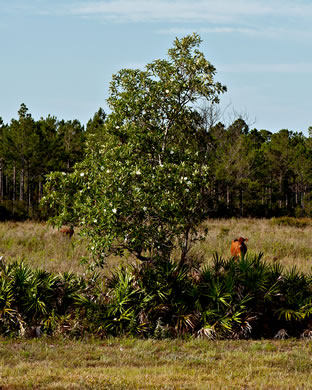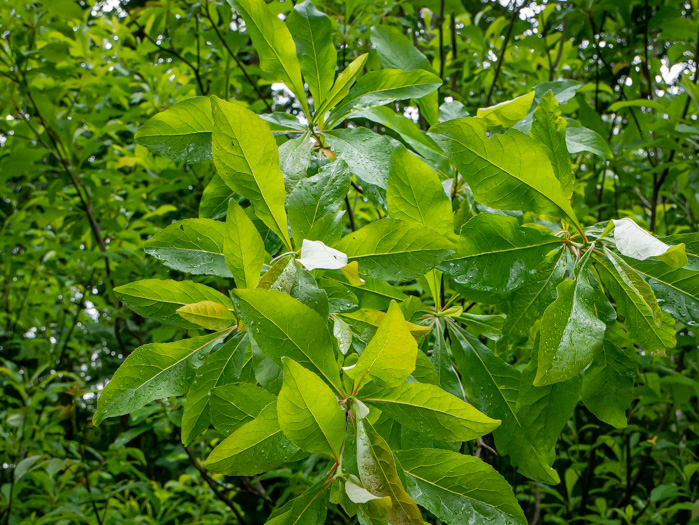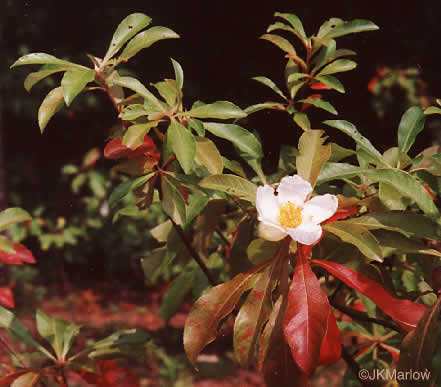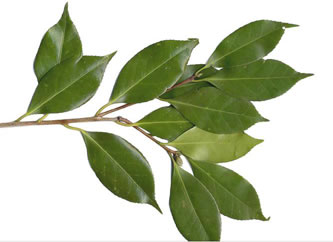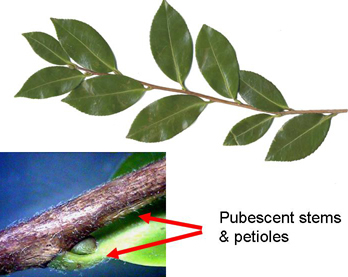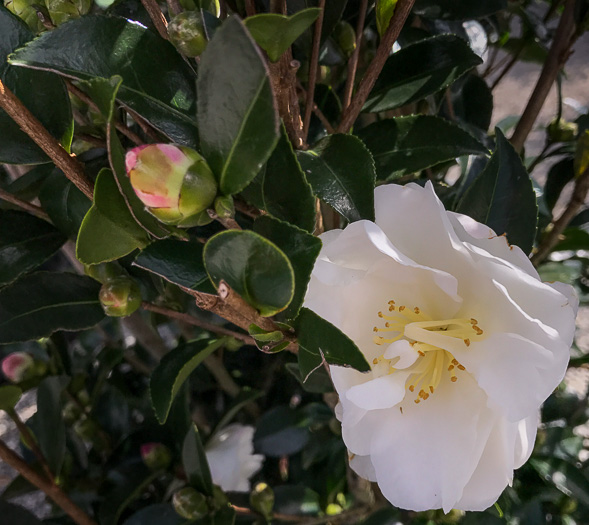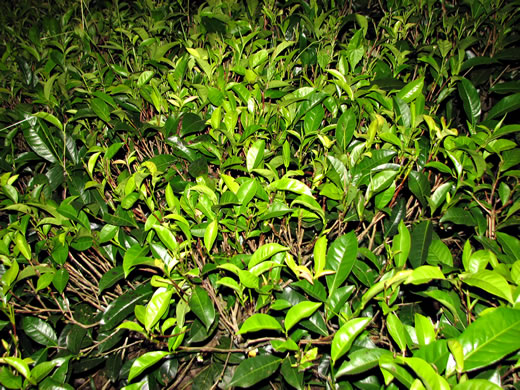Hovering over an image will enlarge it and point out features (works better on desktop than on mobile).
![]() A camera indicates there are pictures.
A camera indicates there are pictures.
![]() A speaker indicates that a botanical name is pronounced.
A speaker indicates that a botanical name is pronounced.
![]() A plus sign after a Latin name indicates that the species is further divided into varieties or subspecies.
A plus sign after a Latin name indicates that the species is further divided into varieties or subspecies.
Most habitat and range descriptions were obtained from Weakley's Flora.
Your search found 7 taxa in the family Theaceae, Tea family, as understood by Weakley's Flora.

![]()
![]() Common Name:
Silky Camellia, Virginia Stewartia, Stewartia
Common Name:
Silky Camellia, Virginia Stewartia, Stewartia
Weakley's Flora: (4/24/22) Stewartia malacodendron FAMILY: Theaceae
SYNONYMOUS WITH PLANTS National Database: Stewartia malacodendron FAMILY: Theaceae
SYNONYMOUS WITH Vascular Flora of the Carolinas (Radford, Ahles, & Bell, 1968): Stewartia malacodendron 124-01-001 FAMILY: Theaceae
Habitat: Mesic forests, especially on beech-dominated bluffs or ‘upland islands’ in Coastal Plain swamps, steepheads, bayheads
Uncommon in Coastal Plain (rare elsewhere in GA-NC-SC)
Native to the Carolinas & Georgia

![]()
![]() Common Name:
Mountain Camellia, Mountain Stewartia
Common Name:
Mountain Camellia, Mountain Stewartia
Weakley's Flora: (4/24/22) Stewartia ovata FAMILY: Theaceae
SYNONYMOUS WITH PLANTS National Database: Stewartia ovata FAMILY: Theaceae
SYNONYMOUS WITH Vascular Flora of the Carolinas (Radford, Ahles, & Bell, 1968): Stewartia ovata 124-01-002 FAMILY: Theaceae
Habitat: Mesic forests, especially along streams and on acidic bluffs, often in openings in rhododendron thickets (‘hells’), in the Coastal Plain of VA restricted to ravines
Uncommon in GA Mountains (rare elsewhere in GA-NC-SC)
Native to the Carolinas & Georgia

![]()
![]() Common Name:
Loblolly Bay, Gordonia
Common Name:
Loblolly Bay, Gordonia
Weakley's Flora: (4/24/22) Gordonia lasianthus FAMILY: Theaceae
SYNONYMOUS WITH PLANTS National Database: Gordonia lasianthus FAMILY: Theaceae
SYNONYMOUS WITH Vascular Flora of the Carolinas (Radford, Ahles, & Bell, 1968): Gordonia lasianthus 124-02-001 FAMILY: Theaceae
Habitat: Pocosins, bayheads, acidic, organic-rich swamp forests, wet pine savannas, bay forests
Common in Coastal Plain
Native to the Carolinas & Georgia

![]()
![]() Common Name:
Franklinia, Franklin Tree, Lost Gordonia
Common Name:
Franklinia, Franklin Tree, Lost Gordonia
Weakley's Flora: (4/24/22) Franklinia alatamaha FAMILY: Theaceae
SYNONYMOUS WITH PLANTS National Database: Franklinia alatamaha FAMILY: Theaceae
Habitat: Habitat speculative, probably dry sandy ridges, near the mouth of the Altamaha River; believed to be extinct in the wild
Historically in GA, but not recently seen
Native to Georgia

![]() Common Name:
Camellia
Common Name:
Camellia
Weakley's Flora: (4/14/23) Camellia japonica FAMILY: Theaceae
SYNONYMOUS WITH PLANTS National Database: Camellia japonica FAMILY: Theaceae
Habitat: Frequently cultivated, sometimes persistent around old home sites, at least weakly spreading near cultivated plants (Diamond 2013)
Waif(s)
Non-native: China & Japan

![]() Common Name:
Sasanqua, Sasanqua Camellia
Common Name:
Sasanqua, Sasanqua Camellia
Weakley's Flora: (4/14/23) Camellia sasanqua FAMILY: Theaceae
SYNONYMOUS WITH PLANTS National Database: Camellia sasanqua FAMILY: Theaceae
Waif(s)
Non-native: Asia

![]() Common Name:
Tea
Common Name:
Tea
Weakley's Flora: (4/14/23) Camellia sinensis FAMILY: Theaceae
SYNONYMOUS WITH PLANTS National Database: Camellia sinensis FAMILY: Theaceae
Habitat: Cultivated in plantations and as a horticultural novelty, rarely escaped
Waif(s)
Non-native: China
Your search found 7 taxa. You are on page PAGE 1 out of 1 pages.

